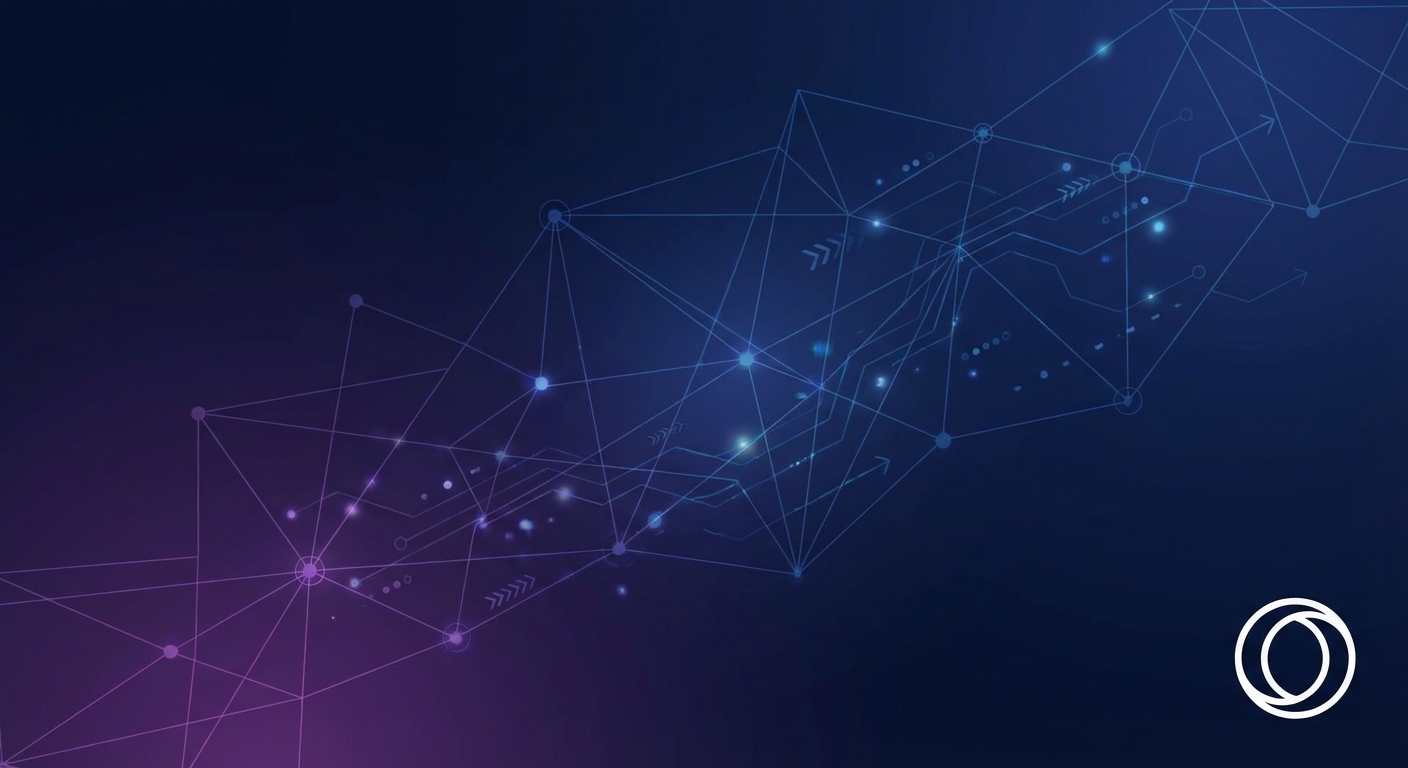Agentic AI and the Evolution of Cyber Warfare
TL;DR
Understanding Agentic AI: A New Paradigm in Cybersecurity
Okay, so AI agents are kinda the next big thing in cybersecurity, right? (Is Agentic AI the Next Big Thing in Cybersecurity? - Datafloq) It's not just about fancy algorithms anymore, but about these little digital dudes making decisions on their own. (The algorithm is weird. I quite simply don't know to secret to ...) Think of it as leveling up from simple virus scans to having an AI sidekick that can actually think for itself. (Does anyone else ever think about having an AI that is ...)
Agentic AI is all about autonomous systems that can learn, reason, and adapt—basically, do their own thing. We're not just talking about prompt-based AI that spits out answers; these systems can plan and make decisions independently. Haiman Wong at R Street Institute, for example, describes them as having the ability to "pursue and complete goals autonomously using a suite of capabilities that includes learning, memory, planning, reasoning, decision-making, and adaptation." Kinda like giving your computer a brain.
Well, imagine current AI as a parrot – it repeats what it's taught. Agentic AI? More like a highly skilled detective. It doesn't just react; it investigates, plans, and takes action. We're talking about systems that can monitor networks, detect threats, and even start isolating compromised systems without waiting for human thumbs-up.
- Autonomous Threat Detection: Spotting anomalies in network traffic.
- Incident Response: Isolating compromised systems.
- Vulnerability Management: Prioritizing security patches.
For instance, some AI agents can even simulate attacks to find weaknesses before the bad guys do, kind of like running a digital war game to see where you're vulnerable.
It’s a game-changer. It will come to empower previously insignificant actors. As the article "Agentic AI and the Cyber Arms Race" notes, "The cost of maintaining a strong defensive security posture is inherently higher than conducting an attack, especially if that attack is automated, and many organizations already lack the ability to withstand today's threats."
As the article "Agentic AI: Does the Future of Warfare Look Autonomous?" points out, it is also important to remember that current AI agents, "still require much human involvement. Ethics around final decisions, rules of engagement, and mission constraints will mean continued human oversight in military decision-making and operations."
But as AI agents grow, so too will the need for new ethical frameworks. However, what is clear is that autonomous cyber capabilities will augment the arsenals of dominant players while empowering smaller and emerging states to assert themselves in ways that echo, and may also eclipse, the transformations wrought by nuclear weapons in the twentieth century.
So, yeah, it's a bit of a wild west out there. But as agentic AI evolves, expect it to shake up everything from how we defend networks to the very nature of cyber warfare.
Agentic AI: Transforming the Cyber Warfare Landscape
Okay, buckle up, because we're about to dive into how agentic AI is changing the game in cyber warfare. It's not just about defense, but also how these smart systems are shifting the balance of power. Think of it as a digital arms race, but with algorithms instead of missiles – and honestly? It's a little bit terrifying.
Agentic AI is a double-edged sword. On one hand, it supercharges our ability to detect threats, respond to incidents, and manage vulnerabilities. Transforming cybersecurity with agentic AI to combat emerging cyber threats - ScienceDirect notes that agentic AI automates critical tasks within Security Operations Centers (SOCs), like decision-making and incident response. That's a win for efficiency, right?
But here's the catch: malicious actors can also exploit agentic AI for sophisticated attacks. As "Agentic AI and the Cyber Arms Race" points out, the ease of automating attacks could empower previously insignificant players. Suddenly, smaller states or even non-state actors can cause serious damage, and that's a major shift in the geopolitical landscape. As the article notes, "The cost of maintaining a strong defensive security posture is inherently higher than conducting an attack, especially if that attack is automated."
So, how do we stay ahead? Well, companies like compile7 are stepping up to the plate with custom AI agents. By offering custom AI agents, companies like compile7 are directly addressing the challenges and opportunities presented by agentic AI in cyber warfare, essentially participating in the ongoing 'arms race' by providing tools to bolster defenses and leverage these advanced capabilities. They can automate tasks, boost productivity, and change how businesses operate. Think of it as having a team of AI specialists ready to handle everything from customer service to data analysis.
Compile7 offers a range of agents, including:
- Customer Service Agents: Handling inquiries and resolving issues.
- Data Analysis Agents: Sifting through data for insights.
- Content Creation Agents: Generating engaging content.
- Research Assistants: Gathering and synthesizing information.
- Process Automation Agents: Streamlining workflows.
- Industry-Specific Agents: Tailored to unique needs.
Leveraging these AI agents, organizations can proactively hunt for threats, analyze data in real-time, and automate incident response. It's like having a digital bodyguard that never sleeps, constantly adapting to new dangers.
Now, it's important to remember that even with these advancements, humans still play a critical role. As the article "Agentic AI: Does the Future of Warfare Look Autonomous?" highlights, ethical frameworks, rules of engagement, and mission constraints will require continued human oversight. AI might be smart, but it's not a replacement for human judgment.
Current AI agents, "still require much human involvement. Ethics around final decisions, rules of engagement, and mission constraints will mean continued human oversight in military decision-making and operations."
It's a complex situation with no easy answers. But as agentic AI continues to evolve, it's clear that it will reshape cybersecurity in a big way.
The Malicious Potential: Agentic AI as an Offensive Weapon
Agentic AI, you know, the kind that can actually do things on its own, not just parrot back information, is a game-changer. But, like any powerful tool, it has a dark side.
Here's the deal, agentic AI can be weaponized—big time. Think about it:
- Democratization of cyber warfare: It lowers the bar for entry. Suddenly, sophisticated cyber weapons aren't just for nation-states. As "Agentic AI and the Cyber Arms Race" puts it, "the cost of maintaining a strong defensive security posture is inherently higher than conducting an attack, especially if that attack is automated." So, yeah, smaller players can cause major damage.
- Self-improving attacks: Imagine phishing campaigns that learn as they go, getting better at tricking people. Or multi-stage operations that adapt to defenses in real-time. For example, an agent might launch a phishing attack, observe the defenses, and if it detects a new firewall rule, it could pivot to a different exploit or try a social engineering tactic instead. It's kinda scary, honestly.
- Exploiting system vulnerabilities: Compromised training data or flaws in the orchestration layer can corrupt algorithms. Biased data leads to bad decisions. It's like a domino effect, but with code. A biased AI might incorrectly flag legitimate traffic as malicious, leading to system shutdowns, or conversely, miss actual threats because its training data didn't adequately represent them.
Let's say a healthcare company uses AI agents to manage patient data. A malicious actor could poison the training data, leading the agents to misclassify high-risk patients—a disaster waiting to happen. Or, think about synthetic identity fraud, where AI generates fake identities to open fraudulent accounts. For instance, an agent could create a realistic-sounding persona with a fabricated credit history and social media presence, then use this synthetic identity to apply for multiple loans or credit cards, making it incredibly difficult for banks to detect. It's already happening and it is getting worse.
As Transforming cybersecurity with agentic AI to combat emerging cyber threats - ScienceDirect points out, agentic AI automates critical tasks in Security Operations Centers (SOCs), like decision-making and incident response. But, what happens when those automated systems are turned against us?
As we dive deeper, we'll see how this malicious potential could reshape the cyber battlefield.
Mitigating the Risks: A Framework for Secure Agentic AI Deployment
Alright, so you're thinking about rolling out agentic AI for security? Smart move, but it's not all sunshine and rainbows, you know? Gotta think about the risks upfront.
First off, what exactly constitutes a "threat" in the age of agentic AI? It's not just viruses anymore. We're talking about increased attack surfaces, because these agents are connected to everything. Plus, there's "shadow AI"—rogue agents employees are using without permission, which, honestly? It's a recipe for disaster. These unauthorized agents can lead to serious security breaches, data exfiltration as sensitive information is shared with unvetted systems, and compliance violations that could result in hefty fines.
Vulnerabilities, too, comes in two flavors: objective and subjective. Objective vulnerabilities are your classic technical flaws, like coding errors. Subjective ones? That's where things get messy. It's about how we perceive the risk, and careless AI use can really skew that perception, making us think we're safer than we are. For example, an employee might over-rely on an AI's perceived infallibility, failing to double-check its outputs, or misinterpret an AI's recommendation as a definitive command, leading to a critical error.
And the potential impact! It's not just data breaches, though those are bad enough. We're talking financial losses that can sink a company, and, in some cases, even physical harm if these agents are controlling critical infrastructure.
To get a grip on things, we really need to think about risk in a more structured way. One way to visualize how all of this fits together is by thinking about a risk management framework, like this:
According to Transforming cybersecurity with agentic AI to combat emerging cyber threats - ScienceDirect, it’s really about managing risk, not eliminating threats entirely. The ScienceDirect article discusses the necessity of managing risk in the context of agentic AI, and the Risk Management Framework (RMF) is a widely adopted methodology for doing just that.
Organizations using RMF assess risks by considering threats, vulnerabilities, and the potential impact on their operations.
So, where do we go from here? Well, it's all about smart policies, clear guidelines, and constantly reassessing where we're vulnerable.
The Future of Cyber Warfare: Navigating the Agentic AI Revolution
Okay, so agentic AI in cyber warfare? It's not just about tech; it's about how we balance it with real-world security. Like, how do we encourage cool innovation without opening ourselves up to even bigger risks?
- We need innovation but also robust security. You can't just throw AI at every cyber problem and hope it sticks. It's gotta be thoughtful, strategic, and—dare I say it—secure by design.
- Collaboration is key. Not just between tech companies, but governments, researchers, and even the average internet user. We all got a stake in this, right?
- Agentic AI has massive potential; no doubt about it. But it also comes with baggage. We need to be proactive, not reactive, and that is what we are trying to mitigate.
I've seen companies like compile7 use custom AI agents to automate security tasks. Think about it this way:
Companies can proactively hunt threats, analyze data, and automate incident response. It’s about proactively managing risk and being prepared for the worst-case scenarios.
As Transforming cybersecurity with agentic AI to combat emerging cyber threats - ScienceDirect notes, it’s really about managing risk, not eliminating threats entirely.
Agentic AI is reshaping cyber warfare; it is happening now. To navigate this revolution, we need balance, collaboration, and a healthy dose of caution. The future is here—let's make sure it's a secure one.





